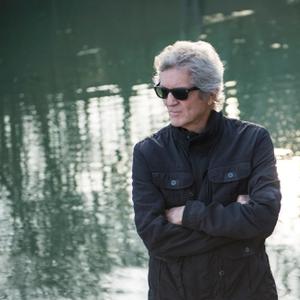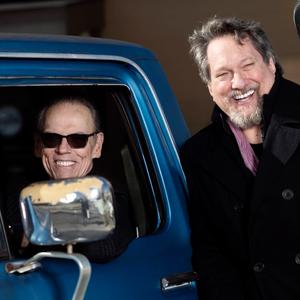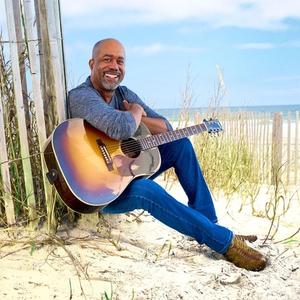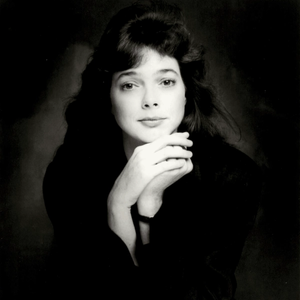




Link copied

The first time I saw Nanci Griffith live was in the tiny Mean Fiddler pub in Harlesden, North London in the 1980s. Performing acoustically, she wore her trademark, oversized Texas brooch, which winked at the rapt crowd as she played.
Word spread, her audience grew larger, and in the following decade I took my father to see her at venues from Hammersmith Odeon to the Royal Albert Hall – and at the end of each concert, he’d slap his thighs with delight and announce that he could happily sit through it all over again.
When I interviewed Griffith around the time of her Late Night Grande Hotel album, the encounter made me appreciate her and her beguiling, literate songs even more.
On Friday 13th August, Nanci Griffith passed away at the age of 68.
A proper appreciation of her life and work is deserved, something we hope to provide with a guide to her key songs:
Once In A Very Blue Moon
This album boasts nine originals (including Darius Rucker’s favourite, ‘Mary & Omie’) and three cover versions, including this distinctive title track, which Dolly Parton recorded on her 1985 Real Love album.
A young Lyle Lovett is on harmony vocals, once saying; “She always encouraged me. My career and life wouldn’t be the same without her.” This ballad shows how cleverly Griffith picked her covers and made them her own.
From A Distance
Moving to Nashville in 1985, signing for a major label, being courted by songwriters and being produced by the legendary Tony Brown must have been a whirl. Meanwhile, Griffith still listened out for covers to complement her own material. Amazingly, this Julie Gold song had been passed over several times when Griffith made this first recording.
Not only did it turn her into an instant superstar in Ireland, and fuel Griffith’s love affair with the country, but she even acquired her own Dublin apartment. Singer-songwriter Laura Cantrell says she’d always been aware of Griffith’s music, but “it wasn’t until I started travelling to the UK and Ireland that I realized what an ambassador she was for American folk music, and how much that audience would mean to me”.
There's A Light Beyond These Woods
One of Griffith’s first reworkings of her own compositions, this was originally the title track on her 1978 album, a homage to a childhood best friend and their scrapes and ambitions.
By this time, Griffith was getting national buzz, just as she and producer Tony Brown were finishing this album.
Trouble In The Fields
As you can see, there’s not a duff track on this album. This powerful song, taken from a farmer’s wife’s point of view, also works as a duet - with Irish singer Maura O’Connell taking the lead here, on the 1998 Transatlantic Sessions, with a backing band including dobro ace Jerry Douglas and double bass maestro Danny Thompson.
The original recording also marks the time Griffith had started assembling her band, the Blue Moon Orchestra, who stayed together for over a decade.
Lone Star State Of Mind
The title track is a gem, written by ‘Once In A Very Blue Moon’ duo Alger and Levine and Fred Koller, as a tribute to Griffith’s beloved Texas. The album features her bluegrass young guns Bela Fleck and Mark O’Connor flexing their string-driven, virtuosic muscles.
Fleck fondly remembers how Griffith sang all her vocals live in the studio and is full of gratitude for getting his start with her: “I’m glad I got to be part of your world.”
Gulf Coast Highway
One of the best duets in Griffith’s catalogue; co-written with Danny Flowers and James Hooker, it features Mac McAnally on the album version (on the live recording below, Hooker steps up). Rolling Stone gave the album five stars, while Bruce Springsteen was a fan of this track in particular, covering it in soundchecks on his Tunnel Of Love tour.
For Texan singer Sarah Jarosz, it’s highly evocative: “The Texas coast is this open, beautiful, raw landscape. Nanci Griffith singing about the Gulf Coast is one of my first experiences of hearing about it in songs, and her songs have been inspirational to me.” The lyrics are concise yet haunting; “And when we die we say we’ll catch some blackbird’s wing / And we will fly away to heaven / Come some sweet bluebonnet spring.”
Outbound Plane
Written with Tom Russell, this song is adored by Americana star Margo Price, who thanks Griffith “for staying true to the craft at a time when many people were releasing garbage.” It would also become a hit for Suzy Bogguss on her 1991 album Aces.
Russell explains: “All those people were friends and I learned a lot, especially melodically. Nanci is very intelligent, coming out of the same Texas folk scene as Townes Van Zandt and Guy Clark. When she moved to Nashville and started trying to think more commercially, that’s how we got to ‘Outbound Plane’. Suzy Bogguss did a great job production-wise, singing the song.”
Love At The Five And Dime
This definitive live version is a classic introduction to the romantic tale of two ordinary folk – Rita and Eddie – falling in love, dancing and growing old together.
There’s also a duet version with Darius Rucker on the 1999 Dust Bowl Symphony album. Rucker calls Griffith one of his idols, and “one of the reasons I am in Nashville… Singing with her was my favourite thing to do.”
It's A Hard Life Wherever You Go
Born educator Griffith was politically driven in her life and art, at times subtly and sometimes more directly. It’s evident with this song, a specific reference to sectarian and racial prejudice from Belfast to Chicago, singing: “If we poison our children with hatred / then the hard life is all that they’ll know.”
There’s another, very different orchestral arrangement on 1999’s The Dust Bowl Symphony with the Blue Moon Orchestra and London Symphony Orchestra.
Listen To The Radio
As Griffith edged into the mainstream, she was produced by Glyn Johns, better known for working with classic rock acts like The Rolling Stones and The Who.
Bouncing along self-referentially as exactly the kind of song you’d sing along to on the FM dial, ‘Listen To The Radio’ also name-checked some of the artists who’d influenced her (most notably her idol Loretta Lynn) as Griffith spoke of leaving her man behind as she struck out for independence and some kind of future.
Her performance of the song at Austin City Limits in 1991 is suitably rollicking.
Late Night Grande Hotel
Moving further towards a mature, pop-rock sheen, this album and its wistful title track was produced by Rod Argent and Peter Van Hook and is at the opposite end of the spectrum from her early, folky outings.
It’s also worth checking out ‘It’s Too Late’ with Tanita Tikaram, who says of Griffith: “I thought she was wonderful, a great live performer, storyteller, songwriter, with a uniquely soulful voice.
I owe her so much as I loved the sound of her records and was thrilled when she invited me to appear on one.” The polished music video for ‘…Hotel’ is very much of its era.
Boots Of Spanish Leather
When Griffith’s previous producer Rod Argent said the Everly Brothers had been the soundtrack to his life, she had an epiphany. “I thought… folk music is the soundtrack to my life.” That led to the Other Voices, Other Rooms album, named for Truman Capote’s novel, on which she interprets 17 other writers, including Bob Dylan, who actually plays the harmonica on ‘Boots of Spanish Leather.’
The other songwriters included Woody Guthrie and Townes Van Zandt, with collaborations from Emmylou Harris to childhood idol, Odetta. Produced by Jim Rooney, it won the 1994 Grammy for best contemporary folk album. On this version, she’s backed by Jerry Douglas and Danny Thompson.
Subscribe and listen to our Best Nanci Griffith Playlist below:






